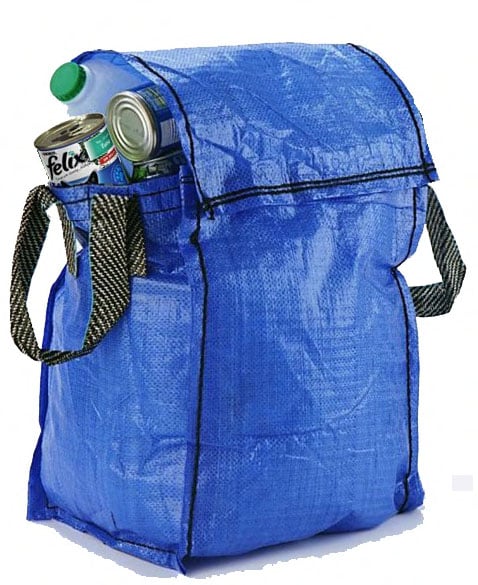This is despite the majority of residents saying they were not in favour of the proposal during a consultation earlier this year.
The Essex-based collection authority confirmed the move at a meeting last week (6 December), saying it hopes for these changes to commence in autumn next year.
The report said the council currently disposes of 10 million single use plastic pink bags every year, which are used to collect commingled dry recycling, at a cost of £475,000 per annum. The council said around 13% of material is contaminated.
Under the new approved plans, the council will switch to twin stream, with each household given two reusable bags for paper and card, and plastic and cans.
This forms part of the council’s measures to increase its recycling rate from 46% to 55% by 2025.
The cost savings of twin stream reusable bags has been estimated at £1 million per annum, both from the reduced processing costs and the bags themselves.
Changes
As well as reusable twin stream bags, the council will also move from black sack collections to wheeled bins for residual waste.
The new bins will have a lower capacity, which the council hopes will decrease the level of recyclables found in the residual waste stream. Basildon said 62% of materials in black sacks could have been recycled.
The wheeled bins also “significantly” reduce litter from sacks being ripped open, the report said.

Consultation
According to the report, in November 2021, the council agreed to include a segregated dry recycling model in a future consultation, following a successful trial. The trial ran between September and October 2021, extending to 320 properties, with plastic and can materials collected in a box and paper and card collected in a reusable sack.
The document said that feedback from residents showed that a majority preferred reusable sacks over a box, with 66% of residents believing that it was the right size.
Following this, the council agreed to commence a consultation on the proposed collection model, which was live between 15 August and 9 September 2022, receiving 5655 responses from residents, the report continued.
The feedback from residents showed that 18% of the respondents strongly supported the reusable sacks for paper and card, with 16% strongly supporting the same for plastics and cans as well. On the other hand, 32% and 33% of the respondents were strongly against these respectively.
However, those who responded were in support of weekly segregated recycling collections (77%) and retaining glass orange box collections fortnightly (88%).
As for wheeled bins for residual waste, this was strongly supported by 47% of respondents, with only 14% of the surveyed residents against the proposal.
Concerns
The report also mentioned concerns that came out of the consultation, with the main one regarding wheeled bins being storage.
The council said it was asked about the provision of a wheeled bin for recyclable materials. However, it was felt after consideration that the provision of additional bins could “prove problematic” for storage for residents, as well as not supporting efforts to reduce contamination of materials within containers.
The report also said that key concerns from consultation respondents regarding reusable sacks were issues with windy conditions leading to containers going missing, storage of containers and hygiene.










Subscribe for free